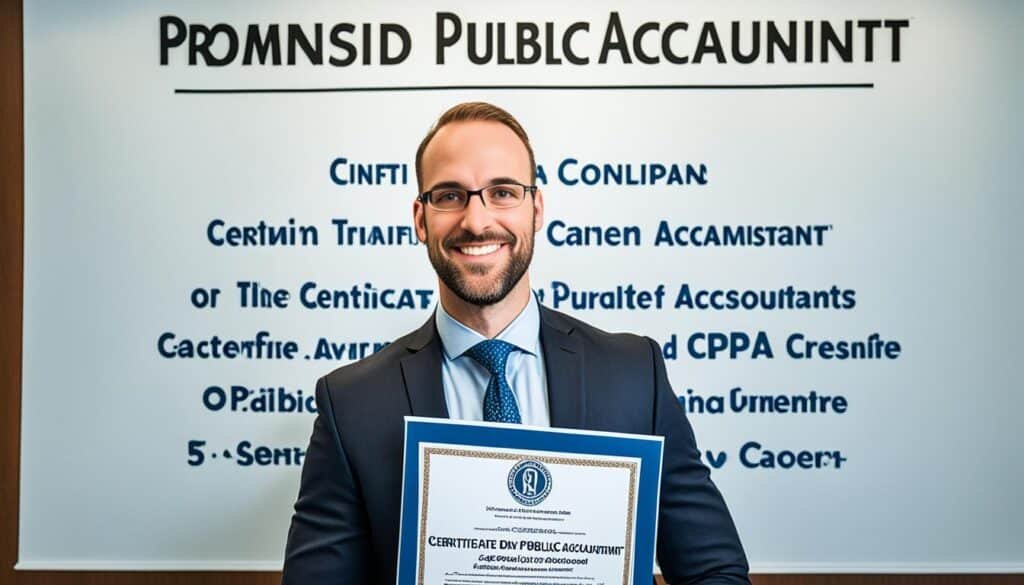Earning the Certified Public Accountant (CPA) credential is a transformative milestone for accounting and finance professionals. The CPA exam is a rigorous, four-part examination administered by the American Institute of CPAs (AICPA) and overseen by the state board of accountancy in each U.S. jurisdiction. Passing this exam demonstrates a comprehensive mastery of accounting principles, financial reporting, taxation, auditing, and business regulations. But the impact of becoming a CPA extends far beyond the completion of the exam sections and the core sections of the exam.
Also Read: The Top 10 Universities Worldwide Offering Scholarships
According to industry experts, passing the CPA exam opens the door to prestigious career opportunities in accounting, finance, and business. The CPA designation is recognized globally and signifies a commitment to professional excellence and adherence to ethical standards. The CPA credential provides instant credibility, expanded career options, elevated earning potential, and opportunities for global mobility and professional development.
Preparing for the rigorous CPA exam cultivates a versatile skill set, including deep financial acumen, strategic decision-making, adaptability, and problem-solving prowess. The CPA exam is a transformative catalyst for career growth, propelling professionals into a realm of unparalleled opportunities, recognition, and expertise.
Key Takeaways
- The CPA exam is a comprehensive, four-part examination that tests proficiency in accounting, finance, and business regulations.
- Passing the CPA exam demonstrates a commitment to professional excellence and adherence to ethical standards.
- The CPA credential provides instant credibility, expanded career options, and opportunities for global mobility and professional development.
- Preparing for the CPA exam cultivates a versatile skill set, including financial acumen, strategic decision-making, and problem-solving abilities.
- The CPA exam is a transformative catalyst for career growth, unlocking unparalleled opportunities, recognition, and expertise.
The Prestige of the CPA Designation
The CPA designation is renowned as the gold standard in the accounting profession, signifying a comprehensive mastery of accounting principles, financial reporting, taxation, auditing, and business regulations. Attaining this prestigious credential involves an intensive preparation and rigorous examination process that showcases a commitment to professional excellence, setting CPA holders apart in the competitive job market.
Also Read: 10 Best Universities In The World For Scholarships
Globally Recognized Credential
Holding a CPA designation provides instant credibility and recognition within the financial industry, as employers, clients, and colleagues hold CPAs in high regard due to their proven expertise, ethical standards, and dedication to upholding financial integrity. The CPA credential is a globally respected mark of excellence, allowing professionals to establish their reputation and expertise on an international scale.
Commitment to Professional Excellence
The comprehensive knowledge and versatile skill set gained through the CPA Exam journey demonstrate a steadfast commitment to the accounting profession. The rigorous preparation and examination process required to attain the CPA designation showcase an individual’s dedication to mastering complex financial concepts, reinforcing their position as trusted financial advisors and strategic decision-makers.
Adherence to Ethical Standards
Alongside technical proficiency, the CPA Exam places a strong emphasis on ethical considerations and professional conduct. CPAs are bound by a code of ethics that prioritizes integrity, objectivity, and a commitment to serving the public interest. This adherence to ethical standards is a hallmark of the CPA designation, instilling confidence in clients, employers, and the broader financial community.
Also Read: 10 Best Universities In The World For Scholarships
Expanded Career Opportunities

The CPA designation unlocks a broader array of career opportunities compared to traditional accounting roles, as mentioned in the second source.
Many leadership positions, such as Controller, Chief Financial Officer (CFO), or Director of Finance, often require or strongly prefer candidates with CPA credentials. Additionally, the versatility of the CPA designation allows professionals to explore diverse industries, from traditional accounting and finance to unconventional fields like education, entrepreneurship, and even the fashion or aerospace industries.
Leadership Roles in Finance and Accounting
The CPA credential is often a prerequisite or highly valued asset for securing leadership positions in the finance and accounting sectors. Employers recognize the expertise and strategic decision-making abilities that CPAs bring to the table, making them sought-after candidates for roles like Controller, CFO, and Director of Finance.
Diverse Industry Exposure
The versatility of the CPA designation empowers professionals to explore a wide range of industries beyond the traditional accounting and finance realms. CPAs can leverage their comprehensive financial knowledge and adaptability to thrive in diverse fields, such as education, entrepreneurship, fashion, aerospace, and more. This diverse industry exposure can lead to recognition for one’s well-rounded experience and make the CPA a valuable asset to future employers.
Also Read: The Secret Advantages Of University Scholarships
CPA Exam: A Comprehensive Knowledge Base

Preparing for the CPA Exam requires a deep understanding of various domains within accounting and finance, as highlighted in the second source. The exam delves into intricate financial reporting concepts, nuanced taxation principles, and meticulous auditing practices, cultivating a comprehensive knowledge base that extends beyond the purview of a standard accountant role.
Financial Reporting and Accounting
The CPA Exam emphasizes a robust grasp of financial reporting standards, such as the Generally Accepted Accounting Principles (GAAP) and International Financial Reporting Standards (IFRS). Candidates must demonstrate proficiency in the preparation, analysis, and interpretation of financial statements, enabling them to make informed and strategic decisions that impact an organization’s financial health and future growth.
Taxation and Auditing Principles
In addition to financial reporting, the CPA Exam tests candidates’ understanding of complex taxation regulations and auditing methodologies. Professionals must exhibit a deep knowledge of individual and business tax planning, compliance, and reporting requirements. Furthermore, the exam assesses their ability to conduct comprehensive audits, identify risks, and ensure the integrity of financial information.
Business Regulations and Ethics
Underpinning the CPA Exam is a strong emphasis on business regulations and professional ethics. Candidates must exhibit a thorough comprehension of corporate governance, compliance, and internal control frameworks. Importantly, the exam reinforces the importance of integrity, independence, and accountability in financial practices, equipping certified public accountants (CPAs) to uphold the highest ethical standards in their work.
Also Read: The Evolution Of The Legal System Through History
Higher Earning Potential

According to the second source, CPAs typically enjoy higher earning potential than accountants without the designation. Employers recognize the added value that CPAs bring to the table and are willing to offer competitive compensation packages to secure their expertise. For example, the first source mentions that as a first-year cost accountant at a large company, the salary range is between $43,000-$53,750, while a controller for a smaller company could earn anywhere between $71,500 and $99,750. However, with a CPA license, professionals can advance to senior auditor, manager, and even partner positions in public accounting firms, with salaries ranging from $52,750-$126,500.
The CPA designation not only provides higher earning potential but also unlocks a broader array of career opportunities, as outlined in the second source. Employers are willing to offer competitive compensation packages to certified public accountants due to their proven expertise, ethical standards, and dedication to upholding financial integrity. This makes the CPA Exam a worthwhile investment for those seeking to excel in the accounting and finance professions.
| Position | Salary Range |
|---|---|
| First-year Cost Accountant at a Large Company | $43,000 – $53,750 |
| Controller for a Smaller Company | $71,500 – $99,750 |
| Senior Auditor, Manager, and Partner Positions at Public Accounting Firms | $52,750 – $126,500 |
The comprehensive knowledge and versatile skill set gained through the CPA Exam journey empower professionals to make strategic decisions, navigate industry changes, and contribute to the financial success of organizations, ultimately driving their own career advancement and personal fulfillment. This makes the CPA credential a valuable asset for those seeking to maximize their earning potential and achieve long-term career growth in the accounting and finance sectors.
Also Read: Foundations Of Legal Systems: An Introduction To The Study Of Law
Networking and Professional Development

Joining the dynamic community of CPAs opens the door to a wealth of networking events, workshops, and seminars that foster continuous professional development. These enriching interactions not only facilitate meaningful connections but also provide valuable mentorship opportunities that can contribute immensely to career growth. Memberships in professional organizations further boost one’s standing in the industry, as they ensure the reliability and high-quality services of CPAs through adherence to rigorous technical and professional standards.
Access to Professional Organizations
Employers often value an individual’s involvement in professional organizations, as it demonstrates their commitment to professional excellence and ethical conduct. This can be a crucial factor in employment and promotion considerations, as it signals the CPA’s dedication to upholding the highest standards of the accounting profession.
Continuous Learning Opportunities
The CPA exam journey does not end with passing the rigorous exam. Rather, it marks the beginning of a lifelong commitment to continuous learning and professional development. Engaging with professional organizations provides certified public accountants (CPAs) with access to a wealth of educational resources, including workshops, seminars, and industry-specific training programs. This ensures that CPAs remain at the forefront of evolving accounting practices, regulations, and technologies, enabling them to provide the most comprehensive and valuable services to their clients and employers.
Mentorship and Networking Events
The CPA examination and certification process can be a challenging journey, but the CPA evolution community offers a supportive network of seasoned professionals who are eager to share their knowledge and experience. Networking events and mentorship programs provide uniform CPA exam candidates and early-career CPAs with the opportunity to connect with seasoned industry leaders, seek guidance, and build lasting professional relationships. These connections can be invaluable in navigating the certified public accountant career path, unlocking new opportunities, and fostering personal and professional growth.
Global Mobility and Travel
The CPA designation enables global mobility and travel opportunities for certified public accountants. Even though the pandemic has had an impact, the accounting profession is expected to resume its global demand for U.S. CPAs. Overseas businesses will seek to work with CPA-licensed professionals, allowing them to work and live abroad for varying durations, from days to years.
International Job Prospects
The CPA credential provides the confidence for clients to allow CPAs to work from anywhere in the world, expanding their international job prospects. This global experience can be an asset, showcasing the CPA’s well-rounded perspective and diverse background to future employers. Work Across Borders With the CPA designation , professionals can leverage their expertise to work across borders, collaborating with international clients and colleagues. This global mobility opens up a world of opportunities, enabling certified public accountants to contribute their financial acumen and strategic insights to a diverse range of organizations worldwide.
Versatile Skill Set

As highlighted in the second source, the CPA Exam cultivates a versatile skill set that extends beyond traditional accounting roles. The comprehensive knowledge gained from preparing for the exam equips professionals with deep financial acumen, strategic decision-making abilities, analytical thinking, and problem-solving prowess. Additionally, the diversity of topics covered in the CPA Exam fosters adaptability, enabling CPAs to navigate complex financial challenges, regulatory changes, and industry shifts with confidence.
This multifaceted skill set makes CPAs valuable assets to organizations, as they can provide innovative solutions and steer companies toward financial success. The CPA Exam journey empowers professionals to develop a comprehensive understanding of accounting, taxation, auditing, and business regulations, equipping them with the tools to make strategic decisions that drive organizational growth and profitability.
Strategic Decision-Making
The CPA Exam’s emphasis on financial reporting, forecasting, and risk management equips CPAs with the analytical skills and strategic mindset to navigate complex business challenges. This enables them to provide valuable insights and make informed decisions that align with an organization’s long-term objectives.
Analytical and Problem-Solving Abilities
CPAs who have passed the rigorous CPA Exam demonstrate a strong aptitude for analytical thinking and problem-solving. These skills are essential in identifying and addressing financial issues, optimizing processes, and developing innovative solutions to enhance an organization’s financial health and operational efficiency.
Adaptability to Industry Changes
The breadth of knowledge covered in the CPA Exam, coupled with the emphasis on ethical decision-making and regulatory compliance, equips CPAs with the adaptability to navigate the ever-evolving accounting and finance landscapes. This agility allows them to anticipate and respond to industry changes, ensuring that organizations remain compliant, competitive, and financially resilient.
Credibility and Recognition

Holding a CPA designation provides instant credibility and recognition within the financial industry, as outlined in the second source. Employers, clients, and colleagues hold CPAs in high regard due to their proven expertise, ethical standards, and dedication to upholding financial integrity. The rigorous preparation and examination process required for the CPA Exam showcase a commitment to excellence that stands out in the competitive job market. This credibility and recognition that comes with the CPA designation can be a significant advantage for professionals, as it demonstrates their expertise and commitment to the accounting profession.
CPA Exam: A Transformative Journey

As mentioned in the second source, the CPA Exam is a transformative catalyst for career growth, propelling professionals into a realm of unparalleled opportunities, recognition, and expertise. The intensive preparation and rigorous examination process required for the CPA Exam showcase a commitment to excellence that stands out in the competitive job market.
Commitment to Excellence
This commitment to excellence not only demonstrates the individual’s dedication to the accounting profession but also fosters personal and professional growth. The holistic knowledge and versatile skill set gained through the CPA Exam journey empower professionals to make strategic decisions, navigate industry changes, and contribute to the financial success of organizations, ultimately driving their own career advancement and personal fulfillment.
Personal and Professional Growth
The CPA Exam experience cultivates a diverse range of capabilities, including financial acumen, analytical thinking, problem-solving prowess, and strategic decision-making. These attributes enable certified public accountants to tackle complex challenges, adapt to industry shifts, and drive innovative solutions that contribute to the growth and success of the organizations they serve. By continuously expanding their knowledge and honing their skills, CPA professionals unlock new opportunities for career advancement and personal development, ultimately elevating their impact and value within the accounting and finance domains.
Alternative Career Paths

While the CPA designation is often associated with traditional accounting and finance roles , the first source highlights that there are alternative career paths for CPAs to explore.
The CPA Exam, a critical step for becoming a Certified Public Accountant (CPA), is evolving with the 2024 CPA Evolution Initiative. Aspiring CPAs must know about the new exam structure, which includes core sections and three discipline sections. The comprehensive guide to the CPA Exam details the application process, from submitting an exam application to receiving a Notice to Schedule. The exam, which must be passed within 30 months, consists of multiple-choice questions and task-based simulations across four sections.
Applicants can review the exam content and structure in the candidate guide to know about the CPA exam better understand the reporting requirements and exam scoring. The CPA Exam requires thorough preparation, including using exam review materials and understanding the exam software. Scheduling and taking individual sections are crucial steps leading up to the exam, with a focus on passing the Uniform CPA Examination. The experience and reporting requirements for CPA licensure vary by state, and candidates must meet all three requirements to be accepted for CPA licensure.
Teaching and Academia
One such option is teaching and academia, where CPAs can leverage their comprehensive understanding of accounting concepts and the CPA Exam curriculum to educate and mentor future candidates. This allows CPAs to share their expertise and passion for the profession, contributing to the development of the next generation of financial leaders.
Entrepreneurship and Consulting
Additionally, the versatility of the CPA skillset can be applied to entrepreneurship and consulting, allowing CPAs to start their own businesses or provide strategic financial advisory services to a wide range of clients. These alternative career paths showcase the adaptability and diverse opportunities available to CPA professionals, expanding their potential for personal and professional fulfillment.
The CPA Exam: Unlocking Opportunities

In the tug-of-war between becoming an accountant and taking the CPA Exam, the latter undeniably emerges as a transformative catalyst for career growth, as outlined in the second source. While being an accountant offers stability and a foundational understanding of financial practices, choosing to pursue the CPA Exam propels professionals into a realm of unparalleled opportunities, recognition, and expertise.
The CPA designation stands as a testament to an individual’s commitment to excellence, study, and dedication to becoming a trusted financial expert. As the financial landscape continues to evolve, CPAs are poised to lead the way, steering organizations toward success, navigating complex challenges, and driving innovation. The CPA Exam, therefore, represents a strategic investment in one’s career, unlocking a world of opportunities for professional advancement and personal fulfillment.
Also Read: CTC Exams Prep: Your Pathway To Teaching Certification
Conclusion
In conclusion, passing the CPA Exam can have a profound impact on one’s career trajectory. The CPA designation is a globally recognized credential that signifies a commitment to professional excellence and adherence to ethical standards. It unlocks a broader array of career opportunities, including leadership roles in finance and accounting, as well as diverse industry exposure.
The comprehensive knowledge gained through the CPA Exam cultivates a versatile skill set, enabling professionals to make strategic decisions, solve complex problems, and adapt to industry changes. Additionally, the CPA credential provides higher earning potential, access to professional networks and continuous learning opportunities, and the ability to pursue global mobility and travel.
Ultimately, the CPA Exam represents a transformative journey that can open doors to unparalleled career advancement, recognition, and personal growth, making it a worthwhile investment for those seeking to excel in the accounting and finance professions.
FAQs
Q: What are the four sections of the CPA exam?
A: The four sections of the CPA exam are Financial Accounting and Reporting, Auditing and Attestation, Regulation, and Business Environment and Concepts.
Q: How is the CPA exam structured?
A: The CPA exam consists of multiple-choice questions and task-based simulations to test your knowledge and skills in accounting and business concepts.
Q: How do I pass the CPA exam?
A: To pass the CPA exam, you need to study diligently, understand the exam blueprints, and ensure you meet the passing score for each section within an 18-month window.
Q: What is the pass rate for the CPA exam?
A: The pass rate for the CPA exam varies, but generally, it hovers around 50-60% for each section.
Q: How long do I have to pass all four sections of the CPA exam?
A: Candidates must pass all four sections of the CPA exam within an 18-month window, starting from the date they pass the first section.
Q: What is the CPA Evolution Initiative?
A: The CPA Evolution Initiative aims to transform CPA licensure to reflect the evolving skills and competencies required in the accounting profession.
Q: How can I prepare for the CPA exam?
A: You can prepare for the CPA exam by studying the exam content, using review materials, taking practice tests, and familiarizing yourself with the exam structure and format.
Source Links
- https://www.linkedin.com/pulse/fuel-your-career-growth-cpa-exams-transformative-impact-education
- https://www.reddit.com/r/Accounting/comments/xrxclu/to_those_who_passed_the_cpa_exam_what_were_some/
- https://accounting.uworld.com/blog/cpa-review/how-cpa-license-can-boost-your-career-next-level/





